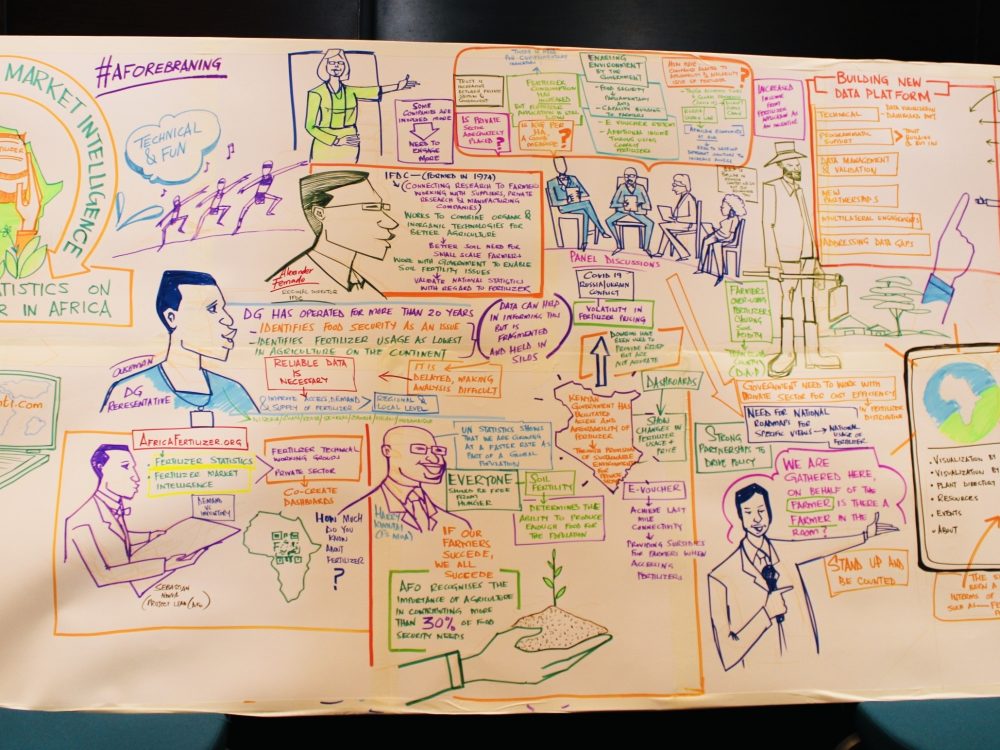Lessons about Results Data from Tanzania
We are pleased to debut our Results Data Initiative: Findings from Tanzania summary report, the third of three country reports from our Results Data Initiative (RDI). The report explores the ways that local government and other development actors in Tanzania collect, share and use results data to inform their work in health and agriculture.
While this report is tailored for government and development partners in Tanzania, it is also relevant for international M&E practitioners and the wider data-for-development community. In particular, we hope that those concerned with monitoring progress toward SDG indicators will take note of what we’ve learned. Some key findings include:
- Data Collection “Burdens.” Health/agriculture service providers are also primary data collectors, and face critical trade-offs between data and service delivery obligations. When considering data collection activities, where possible, government and donors should cut the number of indicators.
- Data Quality and Use. There is a gap in understanding and purpose between data “collectors” (frontline staff) and data ‘users’ (mid-level officials)—and this rift impacts the quality and usability of results data. More specifically, data collectors do not know what their data will be used for (besides reporting), and thus view data interpretation as someone else’s responsibility. Incentives for using results data are absent, as analysis is not required from most officials, nor is it explicitly recognized or rewarded. In short: current systems dis-incentivize both good-quality data and meaningful data use (at every level). But as we outline in our report, there are practical ways to influence these incentives.
- Results and Resource Allocation. The perceived value of a results indicator depends on the resources available to do something as a result of that data, similar to our findings in Ghana. The reality observed on the ground was not about how to allocate resources based on evidence, but how to better spend the limited funds within the given constraints. There are few incentives for local development actors to consider evidence or results when making budgets and plans. We also outline recommendations for addressing this critical challenge.
- Results and Decentralization. Devolution by decentralization is creating new demand for local results data in Tanzania. As local governments are given more autonomy, we heard from officials at all levels that disaggregated outcome data is becoming necessary. As donors and governments prepare plans for collecting data needed to monitor the SDG indicators, the disaggregated indicator needs of local-level actors should be firmly in mind.
You may access the full report here, which includes more details on our findings and recommendations for both government and development partners. Please also reach out via email or social media; we are eager for your feedback and for a critical discussion of ways forward.
Please also see our corresponding Sri Lanka and Ghana reports for more insight on this topic.
Share This Post
Related from our library

Building a Sustainable Cashew Sector in West Africa Through Data and Collaboration
Cashew-IN project came to an end in August 2024 after four years of working with government agencies, producers, traders, processors, and development partners in the five implementing countries to co-create an online tool aimed to inform, support, promote, and strengthen Africa’s cashew industry. This blog outlines some of the key project highlights, including some of the challenges we faced, lessons learned, success stories, and identified opportunities for a more competitive cashew sector in West Africa.

Digital Transformation for Public Value: Development Gateway’s Insights from Agriculture & Open Contracting
In today’s fast-evolving world, governments and public organizations are under more pressure than ever before to deliver efficient, transparent services that align with public expectations. In this blog, we delve into the key concepts behind digital transformation and how it can enhance public value by promoting transparency, informing policy, and supporting evidence-based decision-making.

From Data Gaps to Impact: Key Insights from the VIFAA Program
Over the last six years, DG, together with its partners AfricaFertilizer (AFO) and Wallace & Associates, collaborated to implement the Visualizing Insights on Fertilizer for African Agriculture (VIFAA) Program. In the program’s final year (2024), the team undertook a “program learning process” to reflect on outcomes, challenges, and successes through internal interviews. This blog captures five key learnings, which we hope will guide similar programs aiming to bridge data gaps in agricultural development.